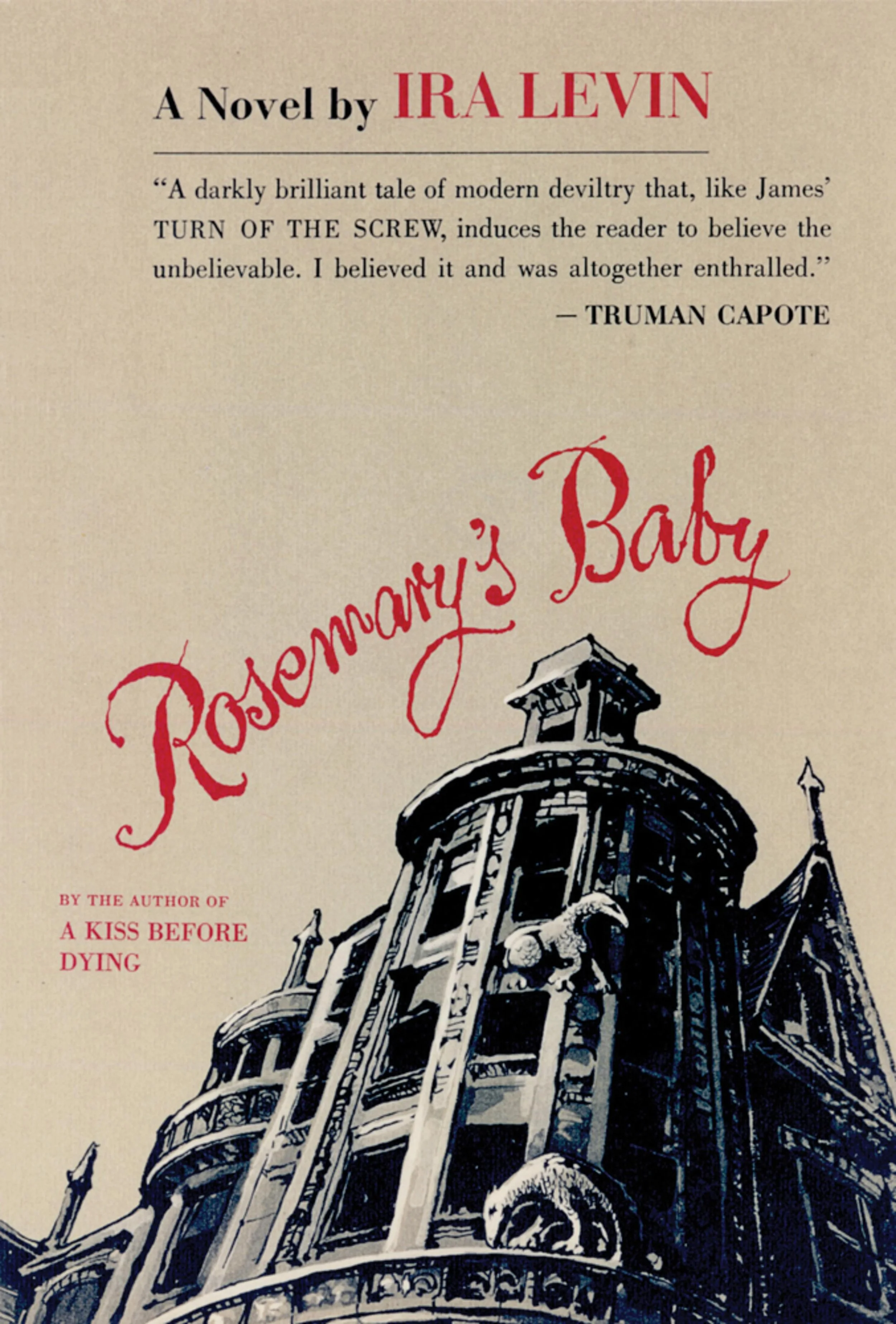Rosemary's Baby

Rosemary’s Baby
By Ira Levin
After almost an entire day from finishing Rosemary's Baby by Ira Levin, I am finally able to autopsy the entirety of the novel. Having first encountered the Levin writing style in my reading of The Stepford Wives about three years ago, I found Rosemary's Baby to have remarkable points in few words.
n hardcover, it was only around 245 pages in length, and it is my argument that few words were wasted on irrelevant material. As a writer who sometimes struggles with brevity, I give Levin kudos for his straight-forward style. He weaves a thematic web in such a way that it entertains and also gets straight to the point.
My only complaint would be with characterization and dialogue. While he successfully creates a unique character in Rosemary, the protagonist, his representation of the elderly couple, especially in the beginning, is almost plastic. Their dialogue even read over the top as far as reactions go—almost like cardboard cutouts of people rather than people themselves. This was jarring to me because Levin did so beautifully with dialogue and mannerisms in The Stepford Wives—an even shorter tale which had some truly rich characters.
Minnie’s interactions with Rosemary appeared to drag on Minnie’s side of the conversation. Almost like her dialogue was intentionally manufactured to make her creepier. While this could have been intentional—a stroke of genius with craft—I have trouble buying it that Levin thought that much into his diction at that particular moment.
That’s no offense to Mr. Levin’s brilliance; I love his work.
Nonetheless, while I feel that it is necessary to explore the societal differences of the time period in the novel, Levin takes the reader and explores the idea that King later explored in The Shining- the idea of terror being within the home and within the sanctity of marriage. During the time of its release in 1967, the world was a little more different.
It's easy for us now to watch a murder mystery show and say to ourselves, "Oh, I know who did it! It was the husband!" or "The wife did it! Blame her!" But in 1967, it was a little more absurd of an idea, amplifying this novel's power in the time period it was released in.
This is also apparent within its genre; in 1967, religion had a place within society as the "third parent." It is true that it was not as much of a presence as it had during the 1950's, but it still had a large role in the lives of the many. This is why, after its release in 1967, Rosemary's Baby was quickly blacklisted by several churches (This did not stop my grandmother from reading it, of course, and then later tricking her sister into going with her to see it at the drive-in… But that is another story.) due to it being a novel of religious horror.
However, this I would say was quite unfair to Levin, considering that religious horror (good religious horror, mind you) itself is an exploration of religion. Novels such as this present the classic retelling of the struggle of Good and Evil, so when we consider this, the novel takes on a new dynamic of questioning how readers bond with their force. I'll admit that I have more than a few, perhaps unconventional, religious ideas, but what is religion?
Good and Evil.
And it is my belief from this reading that Levin takes such an idea and humanizes it as a way of challenging thought. In addition, this is also taken to the next level with how the novel ends; I'm not going to spoil it for anyone, but it centers on the question of which is more important: religion or the bond between mother and child? Can we weigh them side by side? We're taught that they are both connections of love, and when we think of it this way, is one stronger than the other?
This novel only suggests, in my opinion, that Levin was a little more ahead of society in his thinking than some were ready for. It's not a bad thing because the concept itself is not sacrilegious. It's merely a literary thought adventure.
I am curious to see where Ira Levin decided to take readers next with his sequel Son of Rosemary, released in 1997, before his death in 2004.
